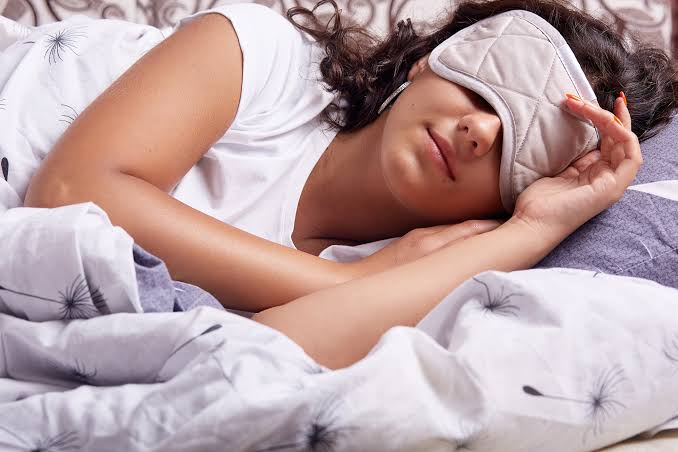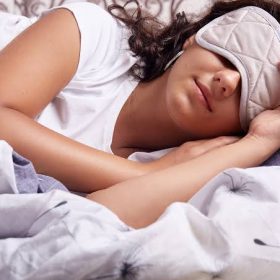10 Sleeping Hygiene Hacks You Need To Know

Sleep Hygiene: The Key to a Good Night’s Sleep
Sleep hygiene is the practice of developing good sleep habits. Poor sleep hygiene can lead to sleep deprivation, which can cause a variety of health problems. Good sleep hygiene, on the other hand, can help you get a good night’s sleep and feel more rested during the day.

Photo credit by Admin
How To Have Good Sleep Hygiene.
There is no one-size-fits-all answer to the question of how to have good sleep hygiene, as the best practices for getting a good night’s sleep will vary from person to person. However, there are some general tips that can help most people get the most out of their sleep.
To have good sleep hygiene, try to establish a regular sleep schedule and stick to it as much as possible. Go to bed and wake up at the same time each day, even on weekends. This will help your body get into a regular sleep rhythm.
Avoid watching television or using electronic devices in bed. The light from these screens can disrupt your natural sleep rhythm.
Caffeine and alcohol before bed. Caffeine can keep you awake, and alcohol can interfere with your sleep quality.
Avoid eating a large meal before bed. Try to eat dinner at least two hours before bedtime.
Make sure your bedroom is dark, quiet, and cool. Darkness and quietness help promote sleep, and a cool room can help you fall asleep and stay asleep.
If you can’t fall asleep within 30 minutes of going to bed, get up and do something calming until you feel sleepy.
Sleep Hygiene Benefits
There is a lot of research that supports the importance of hygienic sleep and how its importance in chronic disease prevention. Poor sleep hygiene has been linked to a variety of health problems, including obesity, heart disease, and diabetes. Below are some benefits of sleep hygiene.
1. Improved mood:
Poor sleep hygiene can lead to irritability, mood swings, and even depression. Adequate sleep, on the other hand, can improve your mood and overall sense of well-being.
2. Improved cognitive function:
Poor sleep can lead to impaired cognitive function, including problems with focus, concentration, decision-making, and memory. Adequate sleep, on the other hand, can help you think more clearly and stay focused on tasks.
3. Improved physical health:
Poor sleep hygiene can lead to a number of physical health problems, such as obesity, high blood pressure, heart disease, and diabetes. Adequate sleep, on the other hand, can help protect your physical health and reduce your risk of developing chronic health conditions.
4. Reduced stress:
Poor sleep hygiene can increase stress levels and contribute to feelings of anxiety and tension. Adequate sleep, on the other hand, can help you feel more relaxed and calm.
5. Improved athletic performance:
Poor sleep hygiene can lead to reduced energy and motivation and decreased athletic performance. Adequate sleep, on the other hand, can help you feel more energized and motivated and may improve your athletic performance.
6. Good sleep hygiene is also important for children.
It can help them to perform better in school, and it can set them up for healthy adulthood.
10 Signs of Poor Sleep Hygiene
There are many signs of poor sleep style, but some of the common ones include:
- Waking up frequently during the night
- Feeling tired during the day
- Trouble focusing
- Feeling irritable.
- Feeling sleepy during the day.
- Difficulty concentrating
- Forgetfulness.
- Undue fatigue.
- Difficulty falling asleep or staying asleep.
- Gasping or choking during sleep.
- Persistent morning headaches.
10 Sleep Hygiene Tips
There are many things you can do to practice good sleep routine, including:
1. Establish a regular sleep schedule. Go to bed and wake up at the same time each day, including weekends. This will help regulate your body’s natural sleep rhythm.
2. Avoid caffeine and alcohol before bed. These substances can disrupt your sleep.
3. Avoid working or using electronic devices in bed. The light from screens can keep you awake.
4. Reserve the bed for sleep and sex. Don’t use it for working, studying, or watching TV.
5. Create a relaxing bedtime routine. Take a hot bath, read a book, or listen to calming music.
6. Keep your bedroom cool, dark, and quiet. Create an environment that promotes good sleep. Some people like sleeping with blue light also. The importance of your own ideal temperature can not be overemphasized.
7. Don’t go to bed hungry or full. Try to eat a light snack before bed if you’re hungry, and avoid drinking too much before bed.
8. Get some exercise during the day. Exercise can help you sleep better at night. Exercising close to bedtime is not encouraging.
9. Don’t stress about sleep. Worrying about not getting enough sleep can actually keep you up at night and frustrated.
10. If you’re struggling to sleep, talk to your doctor. There may be an underlying medical condition causing your sleep problems. For example, acid reflux
11. Soothing music aids meditation.
12. Use comfortable mattresses.
In Conclusion
Sleep hygiene is important for everyone, but it is especially important for people with mental health conditions. Poor sleep can make symptoms worse, so it is important to make sleep a priority. There are many things that you can do to improve your sleep hygiene, including following a regular sleep schedule, avoiding caffeine and alcohol before bed, and creating a relaxing bedtime routine.
By Doctor Rawlings















